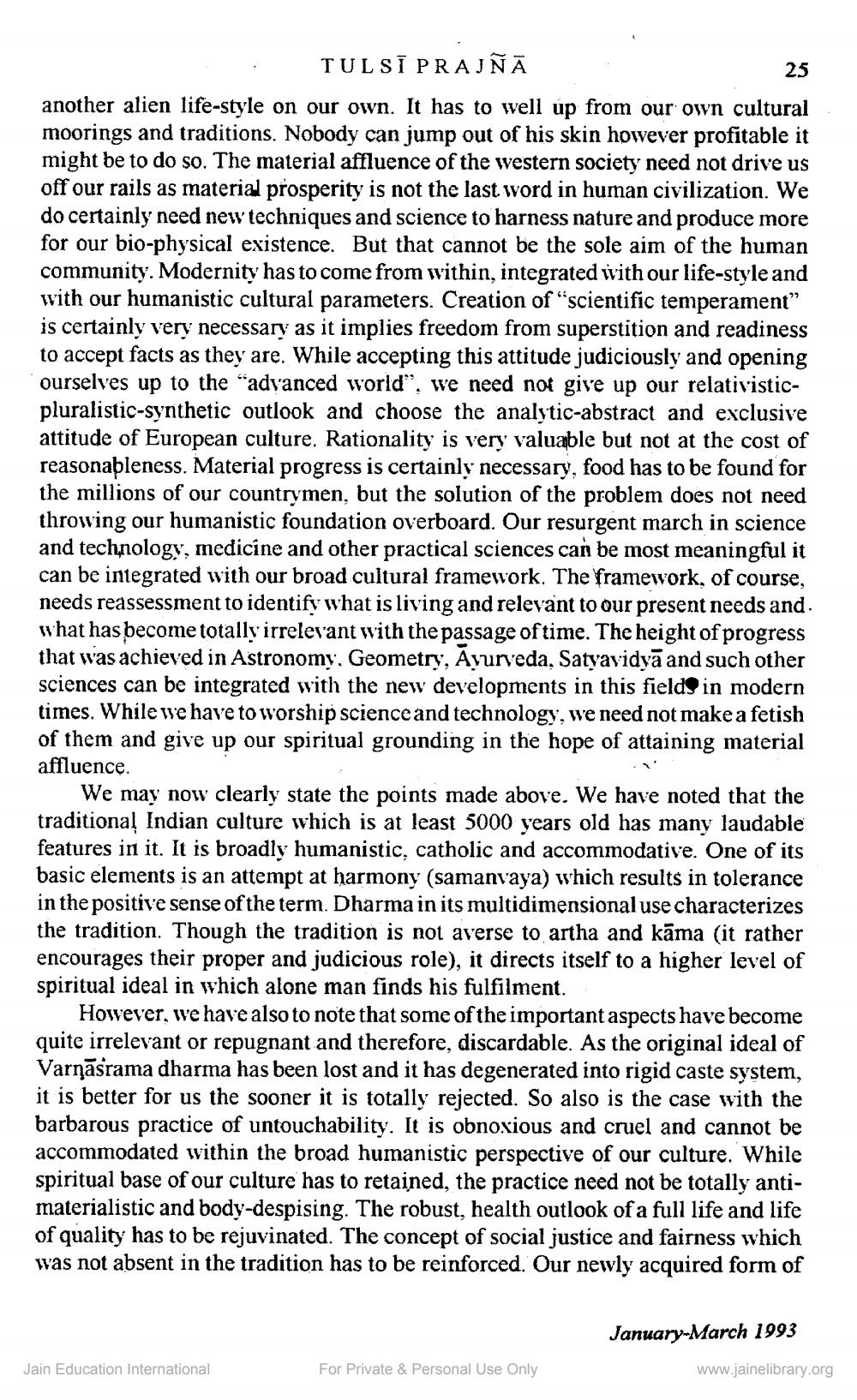________________
TULSI PRAJNA
25
another alien life-style on our own. It has to well up from our own cultural moorings and traditions. Nobody can jump out of his skin however profitable it might be to do so. The material affluence of the western society need not drive us off our rails as material prosperity is not the last word in human civilization. We do certainly need new techniques and science to harness nature and produce more for our bio-physical existence. But that cannot be the sole aim of the human
munity. Modernity has to come from within, integrated with our life-style and with our humanistic cultural parameters. Creation of "scientific temperament" is certainly very necessary as it implies freedom from superstition and readiness to accept facts as they are. While accepting this attitude judiciously and opening ourselves up to the advanced world", we need not give up our relativisticpluralistic-synthetic outlook and choose the analytic-abstract and exclusive attitude of European culture. Rationality is very valuable but not at the cost of reasonableness. Material progress is certainly necessary, food has to be found for the millions of our countrymen, but the solution of the problem does not need throwing our humanistic foundation overboard. Our resurgent march in science and technology, medicine and other practical sciences can be most meaningful it can be integrated with our broad cultural framework. The framework, of course, needs reassessment to identify what is living and relevant to our present needs and. what has become totally irrelevant with the passage of time. The height of progress that was achieved in Astronomy. Geometry, Ayurveda, Satyavidyā and such other sciences can be integrated with the new developments in this fields in modern times. While we have to worship science and technology, we need not make a fetish of them and give up our spiritual grounding in the hope of attaining material affluence.
We may now clearly state the points made above. We have noted that the traditional Indian culture which is at least 5000 years old has many laudable features in it. It is broadly humanistic, catholic and accommodative. One of its basic elements is an attempt at harmony (samanvaya) which results in tolerance in the positive sense of the term. Dharma in its multidimensionaluse characterizes the tradition. Though the tradition is not averse to artha and kāma (it rather encourages their proper and judicious role), it directs itself to a higher level of spiritual ideal in which alone man finds his fulfilment.
However, we have also to note that some of the important aspects have become quite irrelevant or repugnant and therefore, discardable. As the original ideal of Varnāsrama dharma has been lost and it has degenerated into rigid caste system, it is better for us the sooner it is totally rejected. So also is the case with the barbarous practice of untouchability. It is obnoxious and cruel and cannot be accommodated within the broad humanistic perspective of our culture. While spiritual base of our culture has to retained, the practice need not be totally antimaterialistic and body-despising. The robust, health outlook of a full life and life of quality has to be rejuvinated. The concept of social justice and fairness which was not absent in the tradition has to be reinforced. Our newly acquired form of
January-March 1993
Jain Education International
For Private & Personal Use Only
www.jainelibrary.org




